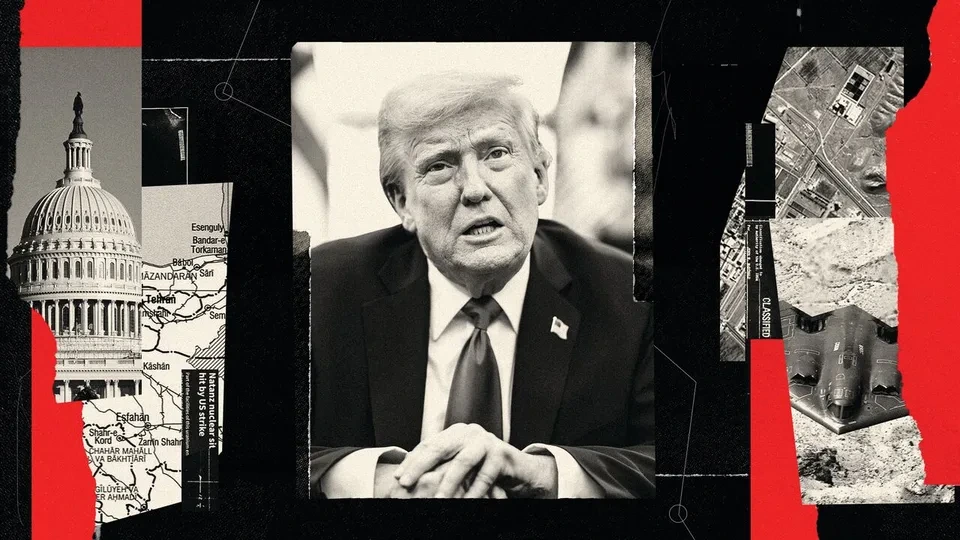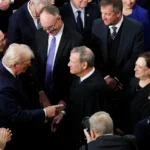The U.S. airstrikes on Iran’s nuclear facilities marked President Donald Trump’s most significant and perhaps most controversial foreign policy decision. While praised by many Republicans, the move triggered mixed reactions both at home and abroad. It raised a key question: Was this a demonstration of strength to deter an adversary, or a calculated domestic maneuver to rally the base and consolidate power?
1. FOREIGN POLICY: A GLOBAL POWER PLAY WITH UNCLEAR STRATEGY
Operational success — strategic ambiguity
From a military standpoint, the operation was close to flawless: stealth bombers entered Iranian airspace undetected and dropped bunker-busting bombs on three nuclear sites. There were no casualties, no resistance, and no U.S. aircraft lost. Diplomatically, a ceasefire between Iran and Israel brokered by the U.S. followed shortly afterward — a success in its own right.
However, as The Economist notes, the long-term impact remains in doubt. American intelligence admits that only the entrances to the facilities may have been destroyed, while the enrichment infrastructure itself could remain intact. This raises the possibility of Iran restoring its nuclear program once conditions allow. Moreover, 400 kg of highly enriched uranium, previously under IAEA oversight, has gone missing — neither the agency nor the U.S. knows where it is.
A new conflict on the horizon?
Should Iran resume enrichment, another intervention may be unavoidable. Israel has already shown a willingness to act alone, and the U.S., which followed Israel’s lead in this case, might be pulled into a new round of escalation. In this sense, the current “ceasefire” could merely be a pause before the next storm.
Inconsistency as a feature, not a bug
Attempts to define a coherent “Trump Doctrine” in foreign policy have largely failed. At times, the America First slogan means retreating from global commitments and avoiding foreign wars. At others, it implies the unilateral right to strike enemies anywhere in the world. One day, Trump embraces American hegemony; the next, he acts like a realist advocating spheres of influence. Allies are confused, and adversaries remain on edge.
As The Economist observes, diplomats in Washington have adopted a mantra:
“Trump’s thinking is not a secret to be uncovered. It’s a mystery to be observed.”
2. DOMESTIC POLITICS: POLARIZATION AND PARTY CONTROL
Electoral logic: victory through conflict
U.S. presidents have historically benefited from successful military actions. Barack Obama saw a spike in approval after the death of Osama bin Laden. Yet Trump hasn’t enjoyed the same effect — not after killing ISIS leader al-Baghdadi, nor after the strike that took out Iranian general Qassem Soleimani.
This time, the domestic reaction once again revealed America’s deep partisan divide. According to a YouGov poll conducted for The Economist, Republican support for striking Iran jumped from 40% to 70% in the aftermath of the attack. Democratic support plummeted from 25% to less than 5%. The numbers reflect a stark truth: for one side, Trump is a hero; for the other, a reckless aggressor.
Taming the isolationist wing of the GOP
Internally, Trump’s decision also quelled dissent within the Republican Party. Leading voices in the MAGA coalition — such as Tucker Carlson, Steve Bannon, and even Vice President J.D. Vance — had urged restraint. So did Director of National Intelligence Tulsi Gabbard. But their influence paled in comparison to Trump’s determination.
Their failure underscored a clear message: the commander-in-chief has the final say. By neutralizing internal opposition, Trump reaffirmed his dominance over the GOP’s foreign policy direction.
Breaking the rules — and getting away with it
Democrats criticized Trump for bypassing Congress. They pointed to the Constitution, which gives Congress the sole power to declare war, and the War Powers Act of 1973, which limits the president’s authority to launch military operations unilaterally.
However, historical precedent is not in their favor: Barack Obama struck Libya in 2011 without Congressional approval; Bill Clinton did the same in Kosovo in 1999. In practice, the American public is unlikely to oppose a president over legal technicalities. For Trump, it’s another example of doing what others did — but with less apology.
Strategy or Instinct?
Trump’s decision to bomb Iran fits a political style rooted in instinct, opportunism, and careful management of media narratives. From a foreign policy perspective, it produced a short-term success — but left many long-term risks unresolved. From a domestic standpoint, it consolidated Trump’s grip on the Republican Party, silenced critics within, and energized his base.
According to The Economist, whether this will go down in history as a strategic triumph or a temporary flex of power depends on what Iran does next.
This article was prepared based on materials published by The Economist . The author does not claim authorship of the original text but presents their interpretation of the content for informational purposes.
The original article can be found at the following link: The Economist.
All rights to the original text belong to The Economist.


















